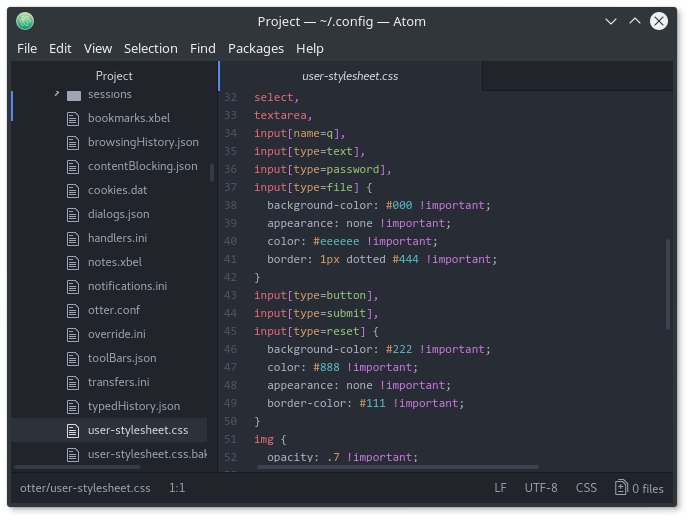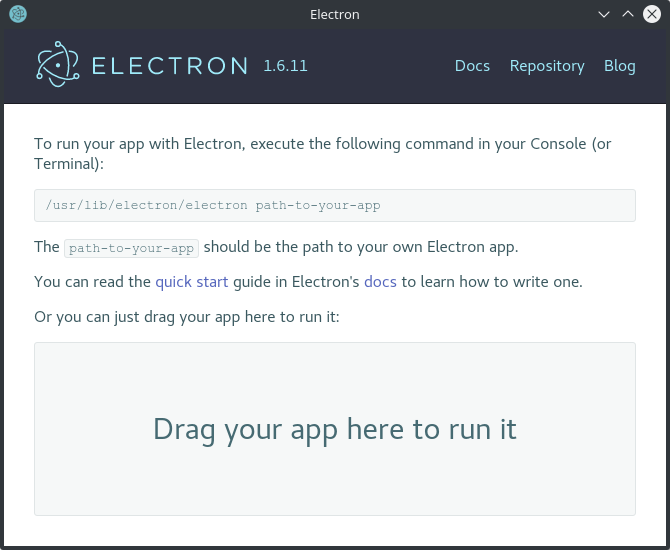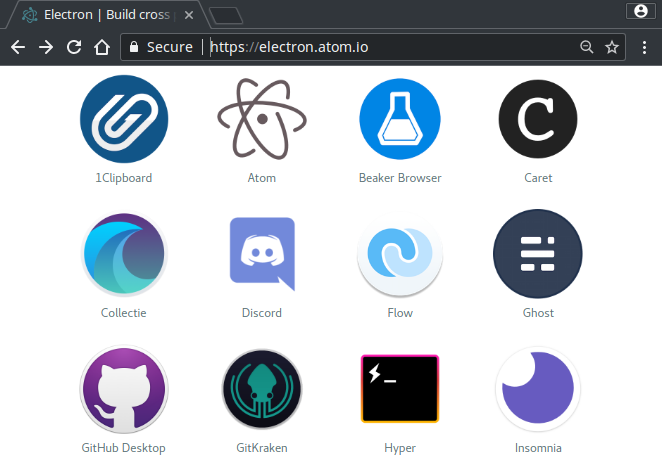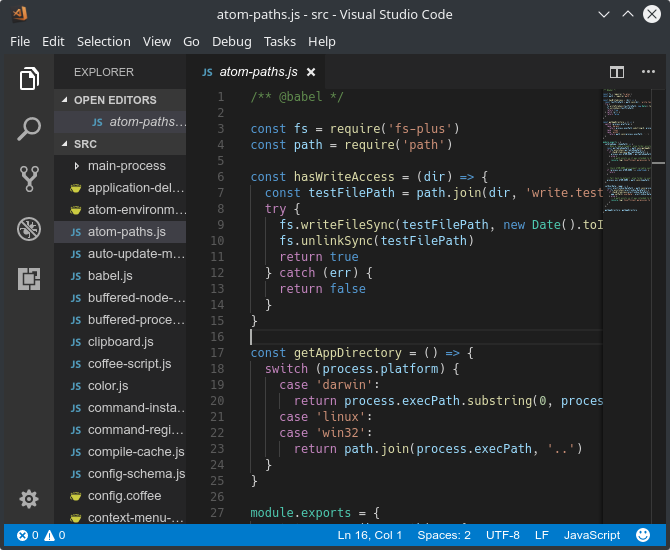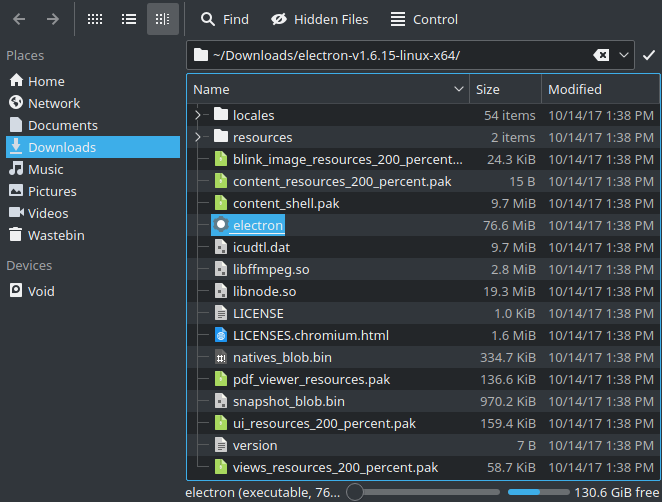These days, there are many types of desktop devices, along with the many different operating systems that run on them. As such, getting programs that work on all of them can be a bit of a challenge. And that's where Electron open framework comes in, as a way of helping to solve this problem.
What Is Electron?
Electron is a software framework for easy cross platform application development. This extends to most desktop operating systems, such as Windows, Mac, and Linux. It was originally designed for use by Atom, a full-featured cross-platform text editor (hence the name Electron).
In other words, from a developer's standpoint, using this framework, they don't need to worry about writing specific programs for each platform (for the most part). This comes with a host of benefits, both to users, and creators.
Something unique about Electron is the way in which it allows people to write applications. Rather than more traditional programming languages, applications using Electron are written in the three main components of many web-pages today. That is to say, HTML (Hypertext Markup Language), CSS (Cascading Style Sheets), and JS (JavaScript).
How Electron Open Framework Works
As such, Electron open framework works similarly to how an internet browser renders its web pages. That is, HTML and CSS for appearance, and JS for inner workings and operations. In fact, the framework holds many similarities to web browsers. Essentially, you're creating powerful web pages to be used as desktop programs.
Electron does not do all its work alone, relying somewhat on the work of other software. A lot of what it can do is thanks to Google's Chromium web browser, which it uses to process and display the applications written for it. But to call Electron merely a web browser would be selling it short.
The framework also uses something called Node.js, which allows Electron programs to operate like more native applications. By itself, Node.js is primarily a web server language, designed to provide interactive content to visitors. As such, it requires certain functions such as editing files, which make it useful for something like Electron.
Furthermore, Electron gives people a way in which to display graphical windows and so on. This is compared to Node.js, which does not do this. It also provides specific methods to integrate better with the target operating system, such as the Macbook Pro's Touch bar.
What This Means for Applications
Given what this software framework is, there are a number of potential implications that come with it. A few of these will be detailed further ahead, in greater detail.
More Cross-Platform Programs
Electron has already become the backbone of a number of different programs, most of which are available on Windows, macOS, and Linux. As mentioned previously, since the framework is based off of web technologies, it allows software written using it a fairly high level of compatibility with each other.
This can only be a good thing for users and developers alike. The fact that one needs to worry less about finding alternatives to programs helps to lower barriers for switching between operating systems. Along with this, it provides the people who write software with a higher coverage of users, with minimal effort.
Discord for example, a relatively new voice application, uses Electron open framework for its native apps on the desktop (mobile is a different matter). Visual Studio Code as well, runs using this framework, a powerful text editor in the same vein as Atom.
There are not many ways to make cross platform applications with little to no effort compared to something like Electron. Especially not with languages like HTML/CSS/JS. The bottom line means more programs that people can use anywhere, regardless of their desktop.
Faster Development Time
Since Electron allows people to create applications using nothing but the languages the web is made of, it helps to lower the barrier of entry to program development. Put shortly, if you know how to write a web page, you're most of the way to knowing how to use Electron.
The fact that the same code that's written for programs using the open framework needs (virtually) no adjusting is another notable benefit. Compare this to an application written in, say, the C programming language, which requires the use of another piece of software to translate it into something usable for different platforms.
In contrast, all that Electron needs is its special run-time environment. A person simply needs to package their code alongside it to get an application up and running.
It allows for applications to be written much more easily and quickly. As such, it means faster program development, alongside a wider user base distribution.
Consistency
Thanks to the technologies on which Electron is built, applications using it tend to look and behave the same, regardless of the platform they're running on. Be that Linux or macOS, hardly anything will be different (except for the parts which are explicitly made so).
This works in a similar way to how web pages are displayed on browsers. And being based off HTML and CSS means being able to easily style applications a certain way. Using Chromium as one of its main components means that it will consistently look like however said web browser would display something.
This doesn't only extend to appearance, however. Because it shares a common back-end among all supported desktops, you can expect similar behavior of applications as well. The JavaScript used to do this will be run consistently, regardless of the platform.
A Few Caveats
All this being said, the Electron open framework may not always be useful for certain kinds of applications. Mobile developers will have to look elsewhere, for example, since the platform is only available for the desktop. And while it's certainly a good way of quickly writing programs, it may not be an appropriate choice for people seeking something lightweight to use.
After all, despite its ability to integrate well with whatever operating system it runs on, Electron, at its core, is powered by web technologies. And Chromium (being the basis of Chrome) is not exactly known for being light on resources. So using the framework for something trivial may not be the best of choices. Again, it's all a matter of using the right tool for the job.
Would you consider using Electron open framework to develop programs, if you had the ability and time to do so?
Image Credit: tolokonov/Depositphotos


